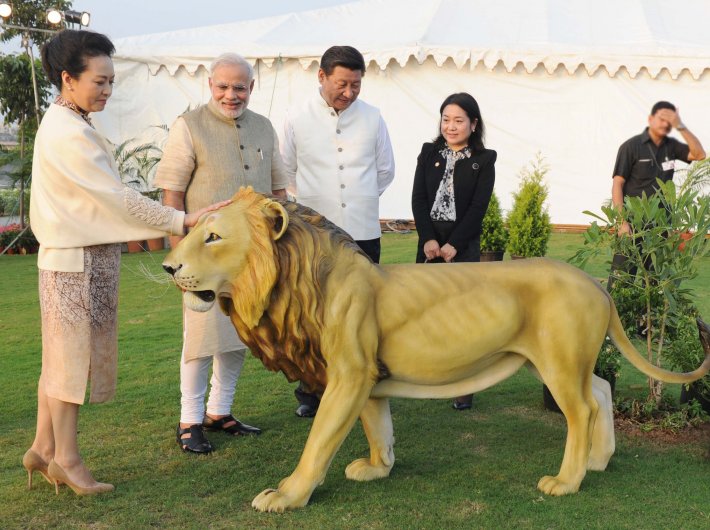Leaders since Nehru were in awe of China, but PM has set the balance of equations right
After the 1962 India-China war, Walter Crocker, then Australia’s high commissioner to India, described prime minister Jawaharlal Nehru’s position by quoting from Victorian poet Robert Browning:
I am an old and solitary man,
Mine eyes feel dimly out the setting sun
Which drops its great fruit of bitterness
Today as other days as every day
Within the patient waters. What do I say?
Crocker’s biographical account of Nehru is one of the most outstanding studies of the personality of India’s first prime minister. And he recounts in his book: “After the Chinese invasion, he never walked firmly again.” He highlights Nehru’s tragedy by pointing out, “The Chinese invasion had undermined his confidence in men, in Indian men as well as Chinese men: it had repeated the outrage on his sense of reason, but it had done more: it had betrayed a trust; a trust given so generously, and for great ends.”
This historical context is quite pertinent in view of the resolution of the Doklam stand-off between India and China. As diplomats from the two sides finalised the wording of the draft for resolution of the crisis on early Monday morning, it became evident that India had effectively exorcised the ghost of 1962 and paved the way for redefining the power balance in Asia.
Obviously, it would be rather naïve to see the resolution of the Doklam crisis in a binary of victory/defeat. It is neither. But there is hardly any doubt that India can now go to any extent to protect its national interest. And prime minister Narendra Modi is not hesitant to take risks and make audacious moves if required to protect the country’s interests.
Contrast this situation with the past, when the Indo-Tibetan border police (ITBP) deployed along the border with China, had been raising red flags over infrastructure building by China on the other side of fence. Till 2000, the ITBP did not have any connectivity with the border beyond Mana. Satellite phones were procured for patrolling parties to keep them in contact with the headquarters in the event of any emergency. There were various instances when the ITBP and the army tried to bring to light this glaring imbalance between China’s army and Indian forces but could not succeed in persuading those sitting in North and South Blocks to lend an ear and correct the situation. There was an unstated fear of China among the political class and bureaucracy. And the successive governments, including that of Atal Bihari Vajpayee, adopted the ostrich approach when it came to China. Apparently, the Indian political class could never get rid of the historical baggage in relationship with China.
But the manner in which Modi has dealt with China right from the beginning has defied the conventional mode of diplomacy. At the diplomatic level, he was cautioned by experts in the foreign affairs to be wary of China’s intentions. He was advised to treat China with certain amount of caution. Modi not only defied these pearls of wisdom but crafted his own strategy in dealing with the Red Dragon. He hosted Chinese president Xi Jinping in Ahmedabad instead of Delhi and displayed his bonhomie with the guest publicly even though Xi’s visit coincided with a Chinese incursion in Ladakh and the subsequent stand-off.
Even as Modi shared with Xi and his wife Peng Liyuan lighter moments on the banks of the Sabarmati, the home ministry went into a tizzy over the Chinese incursion. Insiders say that Modi remained unfazed with the development but tactically raised the issue of persistent Chinese incursion in a subtle manner. Those dealing with the issue say that Modi asked Xi why high-profile visits of Chinese or Indian dignitaries always coincided with Chinese incursions. Xi is learnt to have taken note of it and the stand-off was resolved after he returned to Beijing.
However, Modi had soon realised that the apparent bonhomie between the heads of the states was hardly an insurance to protect the national interests. This became evident from the manner in which China blocked India’s entry into the Nuclear Suppliers’ Group (NSG) and resisted the move to declare Pakistan-based jihadists as global terrorists. Even as China’s hectoring on the border and South China Sea continued, it was taken off guard by India’s snub to its ambitious One Belt One Road (OBOR) plan. The Chinese embassy in Delhi had almost convinced their bosses in Beijing that India would participate in the OBOR meet. India’s challenge to the project on the ground that it infringes on the country’s sovereignty found resonance in the international community.
For the Chinese foreign ministry, its assessment of India went totally awry. The Doklam stand-off only heightened their predicament and provoked them to resort to hectoring and using aggressive rhetoric in the hope that India would back off. Though maintaining a mature but firm posture and ignoring rhetoric emanating from the Chinese embassy and from Beijing, India conveyed in no uncertain terms that it would go to any length to protect its national interests. China realised the futility of reviving the ghost of 1962. Defence minister Arun Jaitley was quite prescient when he casually mentioned India of 2017 is different from India of 1962.
Now, when Modi goes to the BRICS summit early next month, he would be walking firm.

